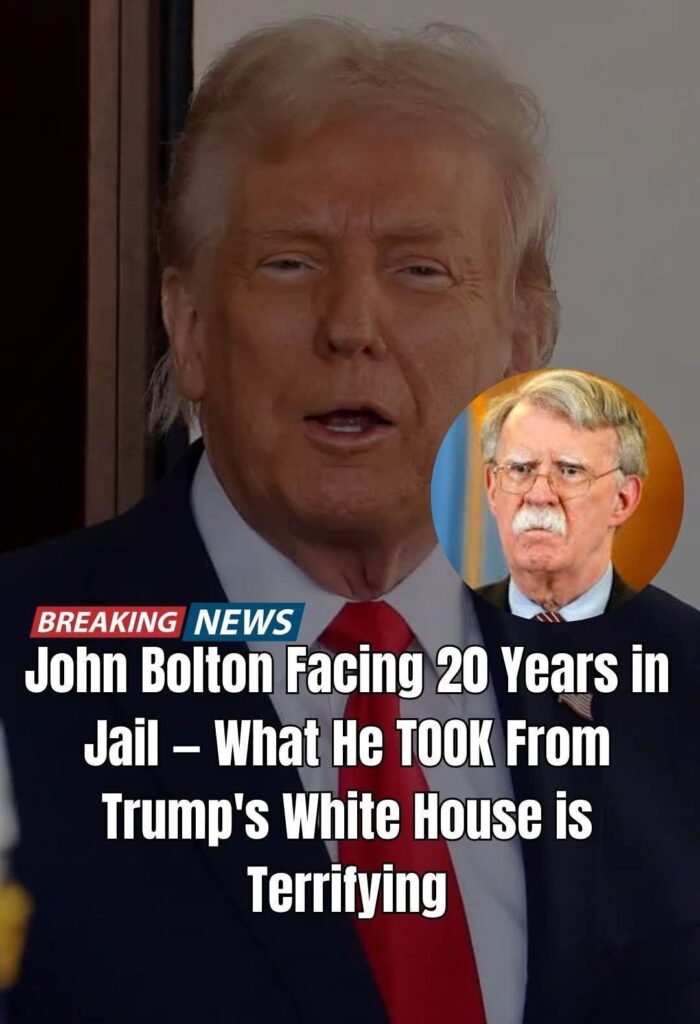
Federal investigators have discovered secret and confidential documents in the downtown Washington, D.C., office of former National Security Adviser John Bolton, court filings released Tuesday reveal.
The findings come amid an ongoing Justice Department probe into whether Bolton mishandled sensitive national defense information during or after his government service.
The search, conducted on August 22 and authorized by U.S. Magistrate Judge Moxila Upadhyaya, uncovered travel memos marked “secret,” along with confidential materials detailing the U.S. mission to the United Nations, strategic communications plans, and documents referencing weapons of mass destruction. FBI agents also seized laptops and other electronic devices, though the contents of these devices remain undisclosed.
Court filings confirm that the investigation centers on potential violations of the Espionage Act, including the gathering, retention, or loss of national defense information without authorization. While the total number of documents seized was not specified, the inventory suggests multiple folders bearing classification markings.
In the U.S. system, “secret” is the middle tier of classification, reserved for information that could cause serious damage to national security if disclosed. “Confidential” is the lowest tier, applied to records whose release could cause some harm.
A separate search of Bolton’s Bethesda, Maryland, residence did not uncover classified documents, though computers and electronics were seized there as well.
The supporting affidavit, filed August 21, cited concerns that Bolton may have mishandled information that could have been exploited by foreign intelligence services, including emails sent while at the White House. Court filings indicate that Bolton’s AOL email account was hacked, though the details of the breach and the foreign entity involved remain undisclosed.
The probe recalls questions raised after the 2020 release of Bolton’s memoir, The Room Where It Happened. The Trump administration initially sued to block the book, claiming it contained classified material. A federal judge noted Bolton’s conduct could have been criminal, but the Justice Department under the Biden administration dropped the lawsuit in 2021. The catalyst for the renewed investigation remains unclear, though comparisons have been drawn to former President Trump’s handling of classified records at Mar-a-Lago.
Bolton’s attorney, Abbe Lowell, maintains that no wrongdoing occurred, stressing that many of the documents were cleared during pre-publication review of Bolton’s memoir. “These materials, many of which were previously approved for Ambassador Bolton’s book, were reviewed and closed years ago,” Lowell said. He added that some records date back more than 20 years, from Bolton’s tenure as Under Secretary of State and U.S. Ambassador to the United Nations, and that a fair review would show nothing improper.
The Justice Department, however, argues that the potential exposure of classified information—even decades-old records—remains a risk. Classified designations do not expire automatically, and materials related to nuclear programs or weapons of mass destruction are considered especially sensitive regardless of age.
The investigation has also drawn political attention. Once one of Trump’s most trusted advisers, Bolton became a vocal critic of the former president after leaving the White House in 2019. Trump has repeatedly labeled him a “warmonger” and accused him of undermining U.S. interests abroad.
Redacted versions of the search warrants, affidavits, and inventories were released after several media organizations petitioned for public access, highlighting the public’s interest in how national security cases are pursued.
The documents underscore the stakes: if Bolton knowingly retained classified materials outside secure channels, he could face felony charges similar to those once leveled against Trump.
For now, Bolton insists the seized records are merely remnants of a four-decade career in public service. Whether the courts will see it the same way remains uncertain—and the case could test the limits of accountability for senior officials entrusted with the nation’s most sensitive secrets.


